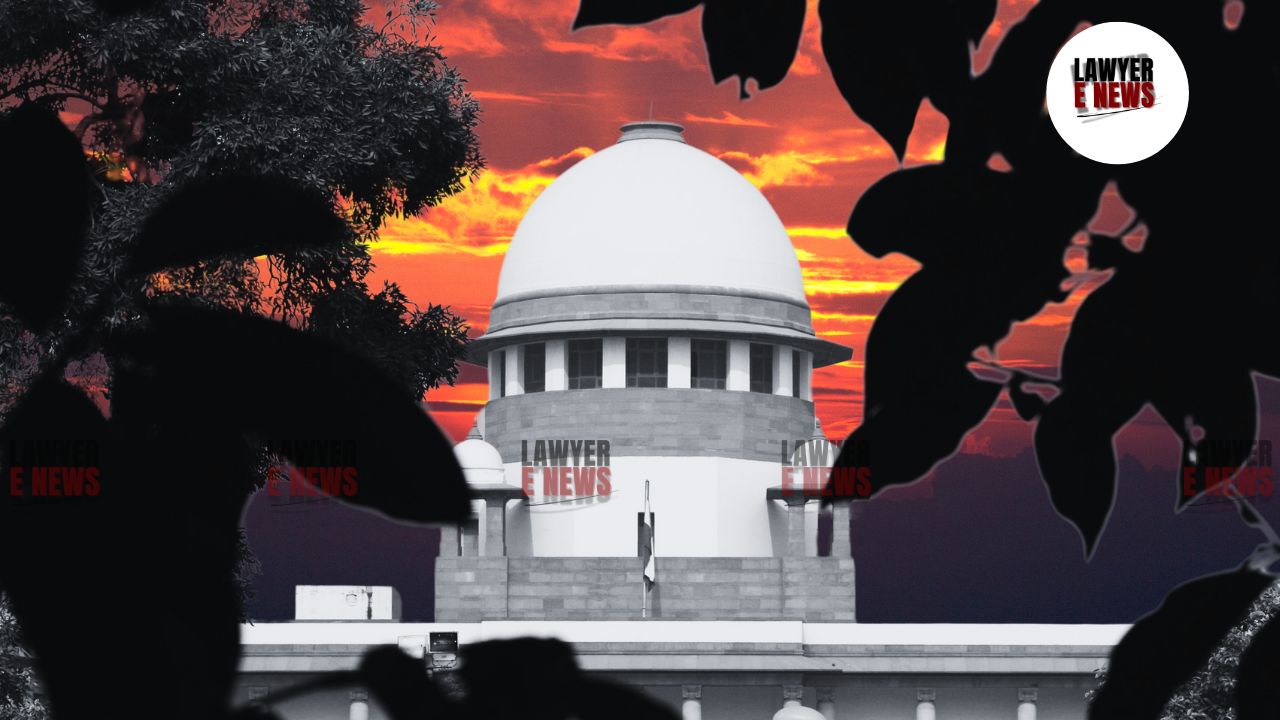-
by Admin
15 February 2026 5:35 AM



In a significant ruling on December 10, 2024, the Supreme Court of India upheld the validity of an auction sale conducted under the SARFAESI Act, 2002, reiterating that unregistered documents, such as an unregistered agreement to sell or power of attorney, cannot confer ownership or interest in immovable property. The Court restored the order of the Debt Recovery Appellate Tribunal (DRAT), which had dismissed the claims of the respondent based on such unregistered documents, and directed possession of the secured property to be handed over to the appellant, the auction-purchaser.
Auction Purchaser’s Rights Affirmed Amid Conflicting Ownership Claims
The case involved a dispute between the appellant, Sanjay Sharma (an auction-purchaser), and respondent No.2, who claimed possessory rights over the auctioned property based on an unregistered agreement to sell. The property, a piece of land with a building and basement located in Old Rajinder Nagar, New Delhi, had been mortgaged by its original owner, Champa Bhen Kundia, to Kotak Mahindra Bank Ltd. (respondent No.1).
Respondent No.1 initiated proceedings under the SARFAESI Act after the borrower failed to repay the loan and conducted a public auction in 2010. Sanjay Sharma emerged as the highest bidder and was issued a sale certificate. However, respondent No.2 challenged the auction, claiming prior possessory rights over the property.
The High Court had earlier set aside the auction sale, holding that respondent No.2's claims based on an unregistered agreement and general power of attorney created a valid interest in the property. This decision was overturned by the Supreme Court, which reaffirmed the legal principles governing property transactions under the Transfer of Property Act, 1882, and the SARFAESI Act.
The Court emphasized that under Section 54 of the Transfer of Property Act, 1882, ownership in immovable property valued above ₹100 can only be transferred through a registered instrument. The agreement to sell and the general power of attorney relied upon by respondent No.2 were unregistered, rendering them legally insufficient to confer any title or interest in the property.
The Court observed: "Until registration is effected, ownership is not transferred. Unregistered agreements to sell cannot defeat the rights of a valid auction purchaser."
The Court held that the auction conducted by Kotak Mahindra Bank was valid and in compliance with the statutory requirements of the SARFAESI Act. Notices under Sections 13 and 14 were duly issued, physical possession was taken, and the auction was publicly notified before being conducted.
It stated: "An auction conducted under the SARFAESI Act cannot be set aside absent evidence of fraud, collusion, or procedural irregularities. Respondent No.2 failed to demonstrate any such irregularities."
The Court clarified that the borrower or any claimant loses the right to redeem the mortgaged property once the auction is completed, and a sale certificate is issued. Ample opportunities to redeem the property were given to respondent No.2, but these were not availed.
Referring to the statutory provisions, the Court noted: "As per Section 13(8) of the SARFAESI Act, the right of redemption ceases once the auction is concluded and the sale certificate is issued. Respondent No.2 cannot claim redemption at their convenience."
The Court rejected the High Court’s finding that the bank was deemed to have notice of respondent No.2's possessory rights. It clarified that unless the deeds of conveyance are registered, they do not create a valid encumbrance or interest in the property that the bank or the auction purchaser is required to acknowledge.
It further stated: "A public auction purchaser cannot be expected to investigate claims based on unregistered agreements or unsubstantiated possessory rights."
Referring to prior judgments, including V.S. Palanivel vs. P. Sriram (2024), the Court emphasized the need to protect confirmed auction sales to maintain the integrity of the auction process.
"Courts should refrain from setting aside auctions unless there is evidence of fraud, collusion, or grave irregularities. Mere procedural lapses do not vitiate an otherwise valid auction," the Court held.
The Supreme Court’s decision reinforces the sanctity of public auctions conducted under the SARFAESI Act and establishes clear guidelines regarding the validity of ownership claims over secured assets. By upholding the appellant’s rights as an auction-purchaser and rejecting unregistered claims, the Court has bolstered confidence in the enforcement mechanisms available to financial institutions.
The judgment also serves as a warning to claimants relying on informal or unregistered documents to assert ownership rights over immovable property.
Date of Decision: December 10, 2024
